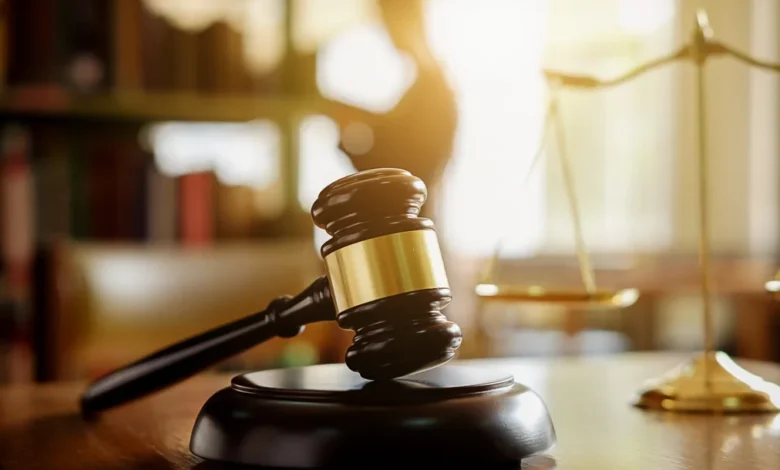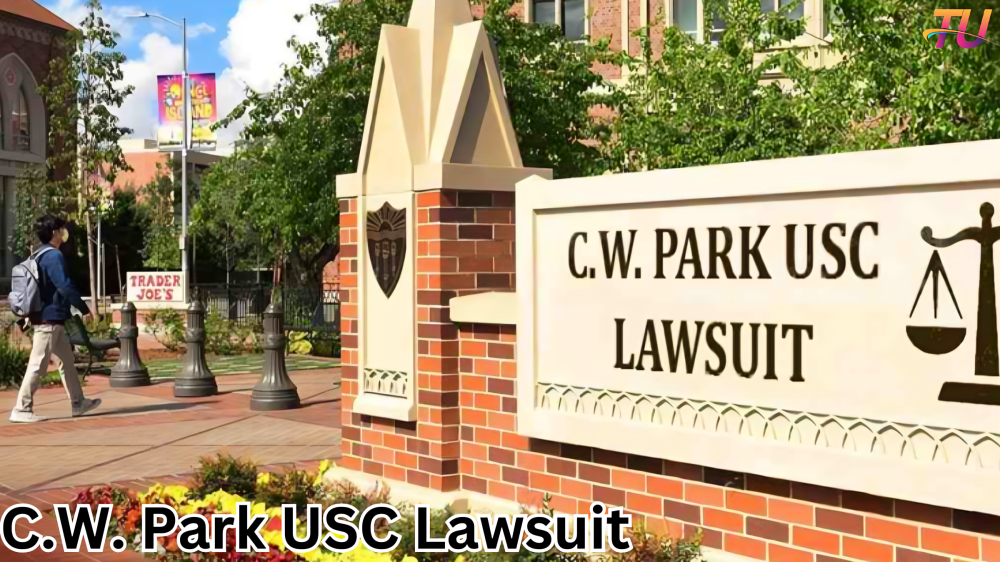C.W. Park USC Lawsuit: Legal Battle, Its Unpacking and Its Implications

C.W. Park USC Lawsuit that Dr. C.W. Park filed against the University of Southern Cal (‘USC’) is a matter that has attracted attention in the academic community and beyond. This is a big C.W. Park USC Lawsuit where the allegations include wrongful termination, discrimination and retaliation — a lawsuit that poses questions of great importance about the protection of faculty rights, academic freedom and institutional impunity. We unpack the details of the lawsuit, its key allegations, and what sort of ripples this type of lawsuit could send through higher education.
The C.W. Park USC Lawsuit: Its Origins
The litigation between Dr. C.W.Park on the one side, and USC on the other, is the outgrowth of a series of events whcih led to Dr. Park’s termination from the university. Park, dean emeritus of management and the Elton Dean Prof. of Management at USC’s Marshall School of Business, was a long time professor at USC, a renowned faculty member and known for his work in consumer behaviour and marketing. But despite all that, his relationship with the university became stormy, and ended with his dismissal that he says was unlawful.
C.W. Park USC Lawsuit claims he was terminated on discriminatory and retaliatory grounds. He alleges that USC had discriminated against him because of his race (Asian American) and gender. Park also alleges that his opposition to discriminatory practices within the university culminated in wrongful termination in violation of federal anti discrimination laws such as Title IX.
Park is essentially saying that he was never fired for not performing as they wanted, instead he was fired for not playing nice with institutional biases. He also sued the university for fostering a homophobic work environment, and alleges that the school did not respond appropriately when he was concerned about discriminatory practices(Law Scope)(The Lawyer World).
Key Allegations: These are Discrimination and Retaliation.

Dr. C.W. Park USC Lawsuit revolves around two major legal claims: discrimination, and retaliation. If these allegations prove true, USC and other college and universities that face similar challenges will have to face serious consequences.
Race and Gender Discrimination
The C.W. Park USC Lawsuit claims that Park was discriminated against because of his race and his gender. Park says he was not given the same treatment as other professors at the university because he is an Asian American male. Instead of icy or the cold, he argues his qualifications and experience continually were passed over for non Asian and female colleagues with an excellent track record in teaching and research.
Park also says he was passed over for promotions under circumstances other than his pay, and that he was passed over in general for professional opportunities that were given to less qualified faculty members in support of his discrimination claims. He also complained that the administration usually failed to hear his concerns about disparities he saw in the department.
Taking Action against Discrimination
The second is Park’s retaliation claim: Park said his termination at USC resulted from his decision to speak out against discriminatory practices at the school. Relations in formal and informal channels ‘from the top down,’ he says, concluded with him becoming a target for retaliation by university administrators.
Shortly after Park had made it formal complaints about discrimination and bias in the department, he was terminated, Park reports, and it was unfair and retaliatory. But he thinks his outspoken criticism of USC’s handling of discrimination complaints ended up costing him his job(The Lawyer World)(espressocoder).
Claims of retaliation can be messy, but if Park can show USC’s firing was tied to his opposing discrimination, it could open USC to huge liability under Title IX and other federal laws.
USC’s Defense: Claims of Poor Performance
USC said it strongly denied all alleged discrimination and retaliation in response to the C.W. Park USC Lawsuit. Park, the university contends, was terminated for no other reason than that he performed poorly as a professor. Park, USC said, received negative reviews from students and colleagues at Marshall School of Business, and his teaching wasn’t up to the standard that USC expects of faculty members at the Marshall School of Business.
C.W. Park USC Lawsuit accuses USC of negligence, ‘polluting the environment,’ mishandling condom donations and concealing negative condom use rates, which have declined to less than 5 percent in recent years. Park contends the university terminated him unjustifiably and because it was retaliating against him for legal actions related to discrimination(Real Magazine)(The Lawyer World).
USC defends itself, saying it fired Park for various reasons, including that an internal review of his performance found that Park taught inadequately and failed to engage with students. Park, the university says, is suing the university to deflect blame for his professional shortcomings.
Implications for Higher Education
The C.W. Park case is really about something much bigger — higher education institutions across the country. If Park is able to prove complaints of discrimination and retaliation in court, and if her team at Quinnipiac and any other cases that are eventually brought will advance fluently and favorably, it could spur universities to reexamine the ‘rules’ or lack thereof, for protecting the rights of faculty, academic freedom, institution accountability, faculty rights, academic freedom, and institutional accountability, in a much wider sense, not only in the US but on this side of globe.
A Cautionary Tale for Universities.
A major lesson to take away from the Park case is that fairness and transparency is so important in the handling of discrimination complaints. The policy of universities needs to protect the right of faculty members and promote a supportive and inclusive work culture. If it doesn’t, it could set universities up for costly legal battles, tarnished reputations and a loss of trust from students, faculty and the community(The Lawyer World).
Title IX and Faculty C.W. Park USC Lawsuit
C.W. Park USC Lawsuit also says the role of Title IX in cases involving faculty members is changing. Title IX is most widely known as legislation that forbids discrimination against students, but also protects faculty who experience sex or gender discrimination. According to Law Scope, as more faculty members bring lawsuits under Title IX – a federal anti-discrimination law – universities are likely to feel stronger pressure to do so, too.
The Impact on USC’s Reputation
The C.W. Park USC Lawsuit is a bad news public relations nightmare for USC. In recent years the university has come under criticism for how it handled sexual misconduct and discrimination cases. Then there’s the Park lawsuit, which, if it hurts USC’s reputation as a top academic institution(Real Magazine), could be another nail in the coffin for the U.S. High School.
The Road Ahead: The C.W. Park USC Lawsuit: What’s Next?
C.W. Park lawsuit still in early stages as of early 2024. USC’s motion to dismiss the case is still pending before the court, and it could be months or years before the C.W. Park USC Lawsuit ends. Both sides have the opportunity to put on evidence and argue its case if the case goes to trial, and the judge or jury will hear it.
Meanwhile, the suit has spurred discussion that is already important about discrimination, retaliation and greater groundwork of accountability in higher ed. Even though Park wins or loses in court, his case is a reminder that faculty members dealing with institutional prejudice and bias have some of the same challenges.
Conclusion
A multifaceted legal battle for C.W. Park v. USC is a huge lawsuit. The case reflects on most fundamental questions of faculty rights, discrimination and retaliation in academic settings. But as the C.W. Park USC Lawsuit plays out, it is sure to define the discussion around these important matters and become a reference point for how universities will govern faculty in the future.



2 Comments